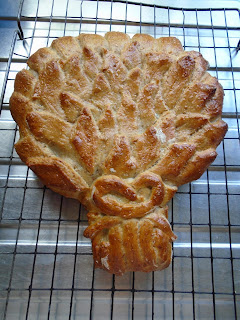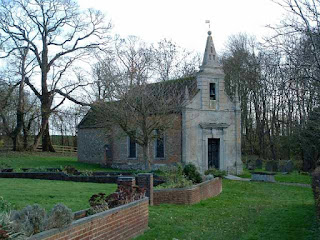As we end November and approach December the civil and church calendars coexist in a somewhat unusual manner in the U.S. Often, Thanksgiving Day is the immediate herald of Advent, but November has five Thursdays this year (Thanksgiving currently is the fourth Thursday of November, not the last Thursday of the month), and this gives a longer-than-usual gap between the culmination of the fall and the start of the Church’s preparation for Christmas—time available for consideration and use in the spiritual life.
Under the current (1979 BCP) version of the Church Year, the last weeks of the annual cycle focus on themes of judgement, harvest, completion, and the consequences of time meeting eternity. These traditional Advent themes are, in effect, stretched out into something like a preamble to that season, emphasizing the elements of our faith summed up in the creeds around the “Judgment of the quick and the dead.” This includes a healthy dose of eschatology and its intensity--the "secret sauce" of all authentic Christianity.
This emphasis allows Advent itself to be focused largely on joy—both the joy of Christ’s first coming (Incarnation/Nativity) and the joy of his second coming at the end of the ages. This is different from prior calendars which tended to look at Advent in more explicitly penitential ways.
Because so much of Western Christianity’s understanding of eschatology has been built on fear, terror, remorse, shame, and condemnation, the other side of the coin is rarely considered. The form Advent now takes in our calendar is less about The Four Last Things of death, judgment, heaven, and hell, and more about living in such a way that we will hear with joy the words “Behold, the Bridegroom comes!” at the end of time.
The biblical figures we focus on in the coming season are: the prophet Isaiah, the Prophet of the Advent; Christ’s Forerunner, St. John the Baptist; and the God-bearer, St. Mary the Virgin.
Isaiah prepares us for God’s shocking action of bringing the Messiah to us; the Baptist heralds the Messiah’s arrival, and the Blessed Virgin consents to God’s election and bears the Christ-child so that God may share in our life and redeem it “from within,” so-to-speak.
Through all of these weeks, the two aspects of our redemption—the proving, testing fire of judgment and the comforting, healing embrace of love—are explored and shown to be but two sides of the same coin. To dwell in the Kingdom of God means an entrance into the divine presence and our true selves, an entrance in which all sin is ultimately consumed and all distortion stripped away in the ravishing, glorious totality of God’s love. This is at the heart of authentic eschatology and forms a major part of the preacher’s and teacher’s work in this part of the Church Year.
Most years, all of this happens in quick succession—The last Sunday after Pentecost, with its imagery of judgement and enthronement being followed by the harvest thankfulness of Thanksgiving Day and then almost immediately by Advent Sunday’s proclamation of “Sleeper’s, Awake!”
This rapidity is as it should be, really. The scriptures testify that God’s judgement will be sudden, not a bureaucratic “process” involving lots of forms and delays, nor a test we “study up” for. Yet, the insertion of an extra week from time-to-time (as with this year) does afford us the opportunity to consider a couple of thoughts: God’s mercy in allowing time to repent, and the difference between judgement and simple retribution.
This extra space of time between Thanksgiving/The Last Sunday after Pentecost and Advent Sunday is a reminder that God often grants us time to draw back and change direction. This space for repentance is one of the many ways God shows mercy, and something to give thanks for, always.
The other point I would like to make about this week is that it shows how God’s judgement is a considered matter, a revealing of our journey, intentions, and purposes, rather than mere retribution or spite.
The parables of judgement in the Gospel are not about a capricious deity just showing off power for power’s sake, but the working out of consequences of deeds done (or not done).
We can go for long periods without thought to the kind of life we are building, but all the while, we are still building it. That is our “life project,” and it is the offering we will make at the end of our earthly pilgrimage. The space between these parables of judgement and Advent Sunday is a good time to think seriously about the nature of that offering, and how we may use this Advent season to renew and re-form that offering so it may be worthy of the eternity on the edge of which we stand this season—and every day—as members of Christ’s body.
Enjoy this week, and use it wisely!





